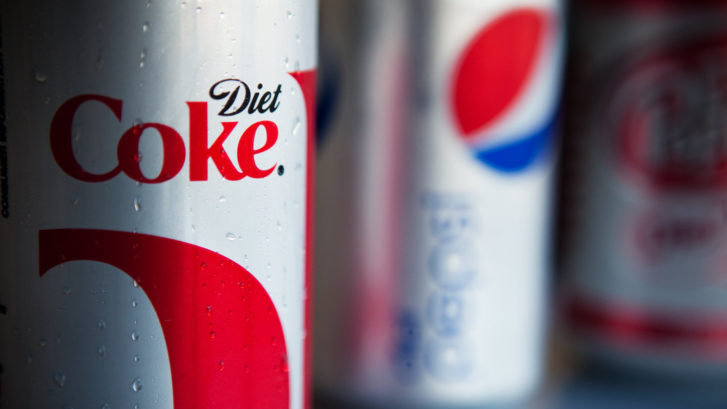The Downside of Diet Soda
Our concierge family practice doctors in Jupiter, applaud any effort by our patients to
Or the culprit could be phenylalanine, a component of aspartame. The Mayo Clinic reports that phenylalanine isn’t a health concern for most people, but in those with certain health conditions it has been known to cause mental retardation, brain damage, and seizures, and may worsen feelings of anxiety and jitteriness.
Studies raise questions
Ever since its introduction in the late ‘70s, aspartame has been the subject of controversy. Critics then charged that the U.S. Food and Drug Administration (FDA) approved the sweetener despite scientific evidence of its harm to humans. In 1999, an Internet hoax letter further fueled the debate, making wild claims about the supposed myriad dangers of aspartame, which various medical studies later debunked.
In the intervening years, however, more studies have been performed, many of which cast some doubt on the safety of aspartame. The most recent was published this month in the journal of the American Heart Association (AHA), Stroke, which seemed to show an increased risk of stroke in older women who consume as few as two diet sodas per day.
Researchers tracked the diet soda consumption of over 80,000 post-menopausal women for 12 years. Those subjects who reported drinking two or more diet sodas a day had a 23 percent increased risk of stroke compared to those who drank the beverages less than once a week. African-American women and subjects who were obese showed an even greater increase in risk.
While acknowledging that “association does not imply causation,” study lead author Yasmin Mossavar-Rahmani said in a statement, “The take-home message is that these findings give us pause. We need to do more research on why we are seeing these associations. What are the scientific mechanisms? Is there something about the artificial sweeteners, for example, that affect the bacteria in the gut and lead to health issues?” Mossavar-Rahmani is an associate professor of clinical epidemiology and population heath at the Albert Einstein College of Medicine in the Bronx, New York.
More studies, similar results
Such caution is a welcome attribute in research, but there are other studies that also raise questions about the safety of aspartame. A 2017 study, also published in Stroke, found that artificially sweetened drinks were not only tied to increased risk of stroke, but of dementia, as well. This study, an offshoot of the long-term Framingham Heart Study, analyzed the results of diet soda consumption on more than 4,300 adults over a period of 10 years. It found that those who drank a single diet soda per day were three times more likely to suffer an ischemic stroke (the kind caused by blocked blood vessels), as well as three times more likely to be diagnosed with dementia, as those who never consumed diet sodas.
Other studies have suggested that drinking two or more diet sodas a day could double the risk of type 2 diabetes as well as metabolic syndrome, the precursor of heart disease. Still, the AHA believes more research must be conducted before definitively linking diet soda to cardiovascular disease.
Nevertheless, “[The Bronx study] is another confirmatory study showing a relationship between artificially sweetened beverages and vascular risks,” Dr. Ralph Sacco, American Academy of Neurology president, told CNN. He added that the more studies there are that find the same associations “the more you begin to question. The more you begin to feel strongly about the association being real.”
Alternatives
There’s no question that consumption of sugar contributes to obesity, a dangerous health condition in itself. That’s why last year the AHA issued an advisory pointing out that short-term use of artificially sweetened drinks could be “an effective strategy” in helping adults lose weight. (It recommended against any diet drinks for children.) The AHA recognized the difficulty of cutting out sweet-tasting drinks entirely, at least in the early stages of weight loss, noting that diet drinks could serve as a “transition” to unsweetened beverages.
But for the long-term, most physicians recommend such healthy beverage alternatives as water, herbal teas, pure fruit juices, and milk. We share this preference as a way to ensure our patients’ health.

